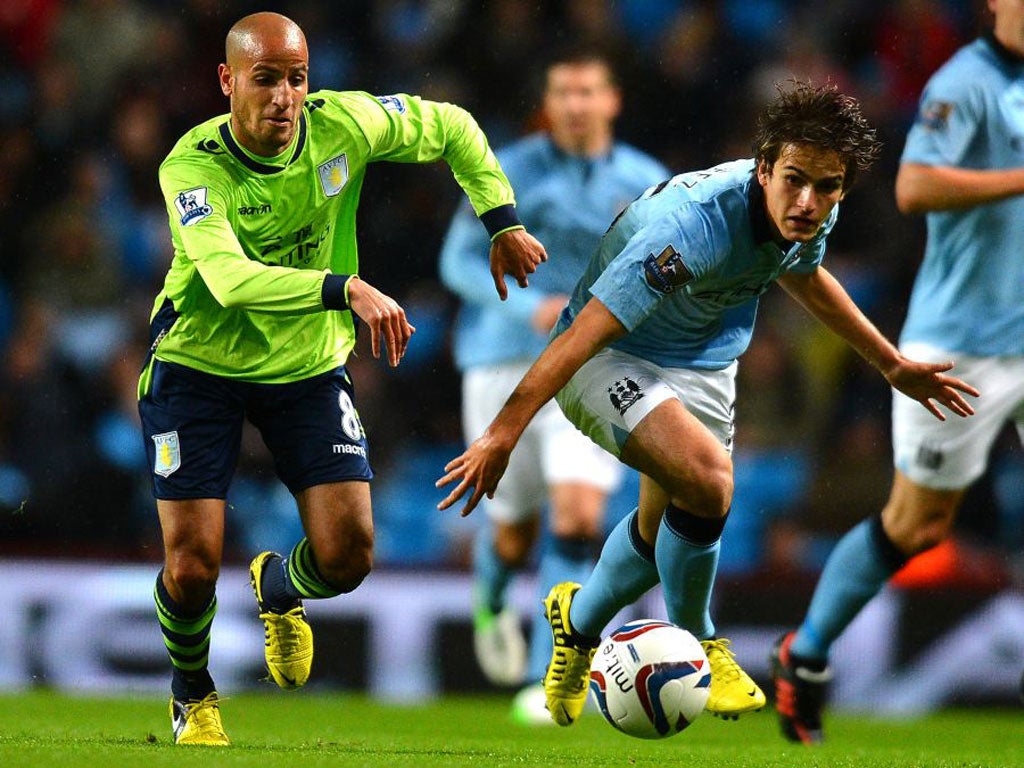Manchester City's academy 'years' from providing first-team talent

Your support helps us to tell the story
From reproductive rights to climate change to Big Tech, The Independent is on the ground when the story is developing. Whether it's investigating the financials of Elon Musk's pro-Trump PAC or producing our latest documentary, 'The A Word', which shines a light on the American women fighting for reproductive rights, we know how important it is to parse out the facts from the messaging.
At such a critical moment in US history, we need reporters on the ground. Your donation allows us to keep sending journalists to speak to both sides of the story.
The Independent is trusted by Americans across the entire political spectrum. And unlike many other quality news outlets, we choose not to lock Americans out of our reporting and analysis with paywalls. We believe quality journalism should be available to everyone, paid for by those who can afford it.
Your support makes all the difference.Brian Marwood, Manchester City's football administrator, has admitted that the club is two or three years away from being able to provide an under-21s supply line to manager Roberto Mancini.
City are investing £200m to develop the new Etihad Campus in time for the 2014-15 season but Marwood said that bricks and mortar are no guarantee of the kind of quality displayed by Borussia Dortmund's home-grown young players, who overwhelmed Mancini's expensive squad two weeks ago.
City believe they are getting closer to the systems which have provided Germany, Spain and the Netherlands with a first-team production line but Marwood does not consider any of the current elite development squad to be ready for Mancini yet.
The 18-year-old Spaniard Denis Suarez has looked the nearest but he is "probably not" ready for first-team action "week-in, week-out," Marwood said. Suarez has only one League Cup start so far.
"If you look at the acquisitions we've made at the youth level, a lot of them have been around 15 or 16 and that's going to take some time," said Marwood, whose side need home-grown talent to limit their exposure to the transfer market as they seek compliance with Uefa's Financial Fair Play (FFP) regime. "We are trying to bridge [this gap] all the time. There probably is a gap. There is a way to go."
There is a deeply held conviction at City that a generation of top players, including Stephen Ireland and Michael Johnson, was lost because those players could not find the application to go with their talents. The City academy is built around attempts to create more rounded individuals who will not let their talents go to waste in the same way. City already put their 14-year-old boys through education at a local private school, St Bede's College, from where they emerge at the same educational level as any other aspiring 16-year-old. But Marwood admitted that the investment in arguably the world's finest football development facility was no guarantee of unearthing talent for Mancini.
"We all hope we are going to produce something that's quite unique and quite special but ultimately it's about the people who execute the strategy," he said. "We are all very excited about building this incredible campus but it's about the people, not the buildings." As yet, City are still buying first-team players, with Marwood citing Serbian defender Matija Nastasic, along with Jack Rodwell and Scott Sinclair, as the next generation. "They are slightly older but they are not 26, 27, 28," he said.
Marwood conceded that FFP "came as a bit of a shock to everybody" but said that the club could not expect Sheikh Mansour bin Zayed Al Nahyan "to continue spending at the rate we have been for the last three or four years". He added that City, whose best under-21s have included Karim Rekik (from the Netherlands), John Guidetti (Sweden) and Jérémy Hélan (France), would not be sentimental about buying English players and would buy abroad if they had to.
The club believe that heavier investment in and far deeper appreciation of top youth coaches is critical. "I think one of the things we haven't done very well in this country is developing coaches," Marwood said. "We hand a seven-, eight-, nine-year-old to a rookie coach when in fact it's the most important coach he is ever going to work with. If you are sending your son or daughter to school and they couldn't find out the fundamentals of reading or writing from an early age then they're going to have a problem in their life. We need to look to get specialised coaches in the right area and they will stay there."
Join our commenting forum
Join thought-provoking conversations, follow other Independent readers and see their replies
Comments